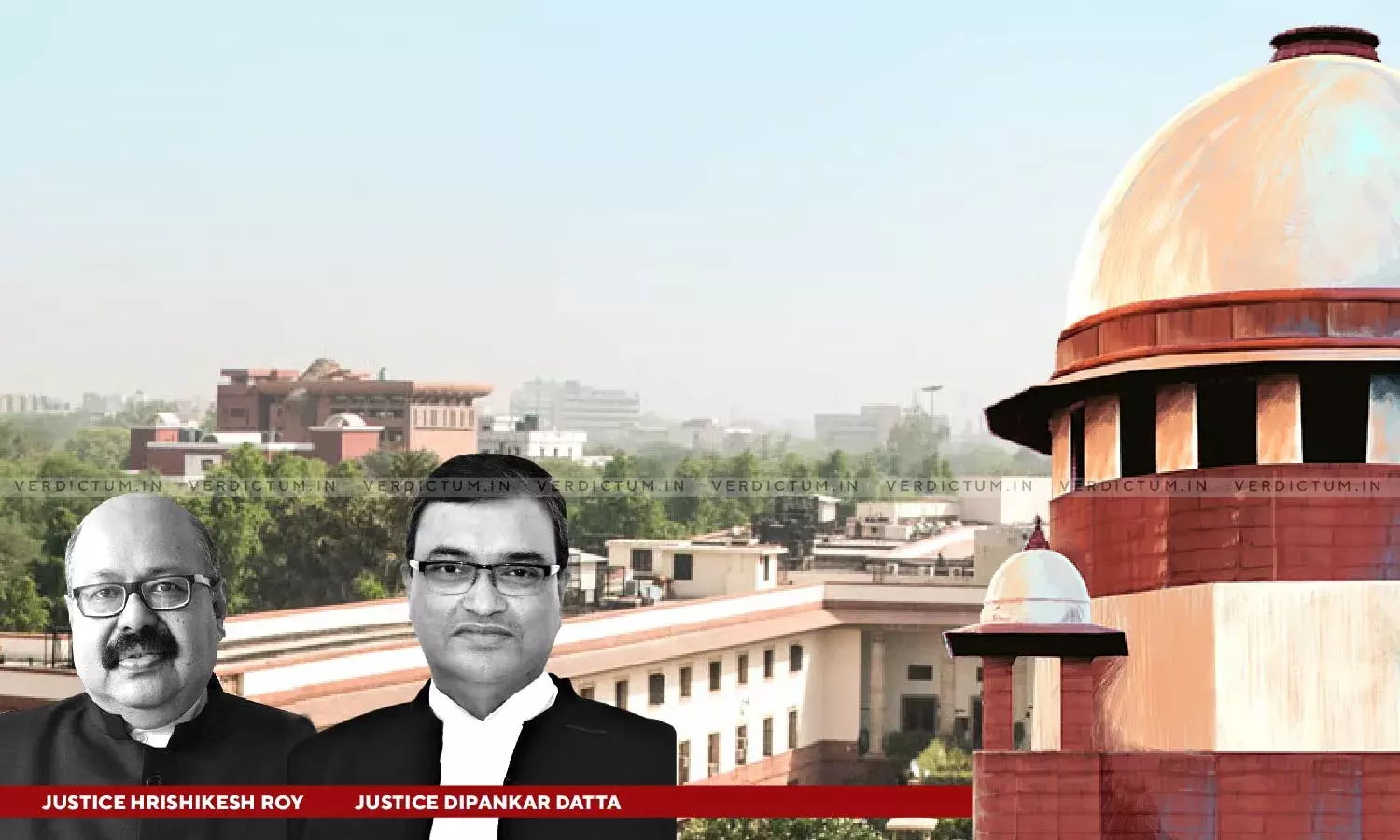Powers U/S 24 CPC Can Be Invoked By Common HC For Two Or More States Even For Inter-State Transfer Of Suits- SC Clarifies

A Supreme Court Bench of Justice Hrishikesh Roy and Justice Dipankar Datta has clarified that the powers under Section 24 of the CPC can be exercised by the High Court even for inter-State transfer of a suit, appeal or other proceeding, if it is the common High Court for two or more States under Article 231 of the Constitution and both the Civil Courts (transferor and transferee) are subordinate to it.
The Court has further clarified that Section 25 of the CPC applies to inter-State transfer of a suit, appeal or other proceeding where both States have a High Court in terms of Article 214 of the Constitution and not to a transfer where both States have a common High Court under Article 231.
Senior Counsel Goswami appeared for the Appellants, whereas Senior Counsel Balgopal appeared for the State of Nagaland.
In this case, the Gauhati High Court had rejected an application which sought the transfer of a suit from the Court of District Judge at Nagaland to the Court of District Judge at Guwahati. Notably, the Gauhati High Court is a common High Court for the states of Assam, Nagaland, Mizoram and Arunachal Pradesh, with the principal seat at Guwahati.
Aggrieved by the decision of the High Court, the Appellants appeared before the Supreme Court.
The Apex Court noted that Sections 24 and 25 of the CPC were the heart of the debate. Subsequently, the Court was of the considered opinion that "section 25 of the CPC would operate as a bar in cases like the one in Durgesh Sharma (supra); however, section 25 of the CPC ~ notwithstanding the scheme envisaged in it ~ does not operate as a complete bar to denude a common High Court, like the Gauhati High Court, to entertain an application under section 24 thereof even for an order to transfer a suit, appeal or other proceeding from one State to another State, provided the States concerned are two of the four States in relation to which such High Court still exercises jurisdiction."
In similar context, the Court observed that "While focusing on section 25, one cannot be completely oblivious of the terms of section 24(1)(b)(ii). As and when it is approached with an application under section 24 for transfer, the High Court, subject to its satisfaction that the facts and circumstances do warrant an order to be made, is empowered to “transfer … to any Court subordinate to it”. These words are of immense significance. In directing a transfer, the High Court can transfer a suit, appeal or other proceeding to “any Court” but bearing in mind the fetter that any such court, to which the relevant case or matter is proposed or sought to be transferred, must be subordinate to it and otherwise competent to deal with the subject matter; if such court is either not subordinate or not competent, the power is not available to be exercised. However, there is no such fetter in section 24 that power under sub-clause (ii) of clause (b) of sub-section (1) thereof cannot be exercised if the transferee court, though subordinate to the High Court, is situate in a different State."
In furtherance of the same, the Court took the view that "The power is available so long the Civil Court continues to remain subordinate to it under Article 227 read with Article 235 and under section 3 of the CPC. To this extent, the High Court enjoys a supreme power which is not even subject to the power of the Supreme Court under section 25. The only caveat is that this power of transfer under section 24(1)(a) and 24(1)(b)(ii), however, cannot be exercised by the Gauhati High Court, say for transfer of a civil suit from a court in Assam or Nagaland to a Civil Court in Tripura or Manipur or Meghalaya because the said States, from 2012, are no longer part of the Gauhati High Court and are since having High Courts of their own."
Issuing a clarification, the Court was of the opinion that "It is time all concerned realize that a High Court ~ howsoever big or small, old or new ~ is as much a Constitutional Court as this Court is and enjoys wide ranging powers vested in it by law. No doubt, the power under section 25 is a special power, but the common High Courts of the country ought not to read section 24 of the CPC in a manner as if the power of the Supreme Court under section 25 to order an inter-State transfer is available to be exclusively exercised by it in all cases of inter-State transfer, thereby denuding the common High Courts of the country of their jurisdiction by mere reference to involvement of an inter-State transfer and without anything more being looked at."
Further, the Court observed that the exercise of the power that Section 24(1)(b)(i) confers on the Gauhati High Court in a given case, would ultimately entail a transfer of the civil suit from the State of Nagaland to the High Court, having its principal seat at Guwahati in the State of Assam. In that context, it was held that "Such a situation is not and cannot be controlled by section 25, and on a harmonious reading of sections 24 and 25, it has to be held that section 25 does not in all cases fetter the power of a common High Court to order inter-State transfer of a suit, appeal or other proceeding."
In light of the same, the transfer petition under Section 25 of the CPC was rendered infructuous and was dismissed.
Cause Title: Shah Newaz Khan vs State of Nagaland

